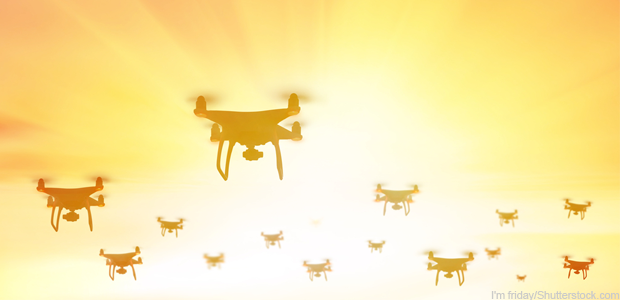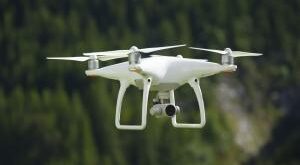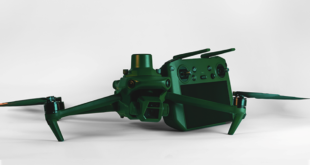Drones
U.S. geospatial data could flow to China via drones
Experts and public officials warned lawmakers at a Senate hearing of the security risks arising from China’s increasing dominance in low-cost unmanned aerial vehicles.
Harry Wingo of National Defense University told the Transportation Subcommittee of the Senate Commerce Committee that the Chinese company DJI has a “near monopoly” on drone technology marketed in the U.S. That technology isn’t just in the gears and rotors, but also in the image collection and storage systems that take photographs and retain data.
“American geospatial information is flown to Chinese data centers at an unprecedented level. This literally gives a Chinese company a view from above of our nation,” Wingo said at the June 18 hearing. “DJI says that American data is safe, but its use of proprietary software networks means how would we know.”
Wingo noted that the Department of Defense has banned the use of DJI drones and expressed concern that U.S. public safety organizations including police in New York City have adopted the Chinese-made tech. “When you consider protecting a U.S. city at that level, to hand that information over is concerning,” he said.
In December 2017, an intelligence memo from Immigrations and Customs Enforcement alleged that images of U.S. critical infrastructure facilities were being gathered and possibly sent to Chinese government data centers by drones.
A spokesperson for DJI North America strongly disputed the notion that its drones were communicating with outside sources without the knowledge of the operators.
“As a privately-held global technology company, DJI gives customers full and complete control over how their data is collected, stored, and transmitted. DJI drones do not share any data with DJI, over the internet, or in any other manner unless the operator deliberately chooses to do so,” said company spokesperson Adam Lisberg in an email. “The security of our technology has been independently verified by the U.S. government, and our products meet all of the U.S. Department of Homeland Security’s data management recommendations.”
Catherine Cahill, director of the Alaska Center for Unmanned Aircraft Systems Integration, noted in her testimony that closed software and storage systems for foreign-made drones are a concern.
“We are working to address foreign systems by using open source autopilots instead of the foreign made systems coming with them,” she said. Cahill also warned that drone technology being developed in the U.S. is threatened by industrial espionage from foreign competitors.
Cahill said the U.S. must be careful in the rush to develop both drones and anti-drone technologies. Some technologies being developed in U.S. research centers could be vulnerable. For instance, she said some forward-looking infrared cameras used in academic research laboratories or in remote sensing classes at her facility are controlled under International Traffic in Arms Regulations.
“We do see approaches from Iran, Russia, Pakistan. They want to come and learn” about the center’s work and test site. “They assume we’re an easier target than the Defense Department.”
Additionally, Cahill and Angela Stubblefield, deputy associate administrator at the Federal Aviation Administration’s Office of Security and Hazardous Materials, told lawmakers that Congress should consider authorizing counter-UAS technology testing, currently forbidden under law except for a narrow exemption granted to the Departments of Defense, Energy and Homeland Security.
Sen. Dan Sullivan (R-Alaska), the chairman of the Transportation Subcommittee, said a possible change to the law that might allow for anti-drone technology testing by nongovernmental entities in the wide, unpopulated expanses of his home state might be worth considering.
This story was updated June 19 to include a statement from DJI.
About the Author

Mark Rockwell is a senior staff writer at FCW, whose beat focuses on acquisition, the Department of Homeland Security and the Department of Energy.
Before joining FCW, Rockwell was Washington correspondent for Government Security News, where he covered all aspects of homeland security from IT to detection dogs and border security. Over the last 25 years in Washington as a reporter, editor and correspondent, he has covered an increasingly wide array of high-tech issues for publications like Communications Week, Internet Week, Fiber Optics News, tele.com magazine and Wireless Week.
Rockwell received a Jesse H. Neal Award for his work covering telecommunications issues, and is a graduate of James Madison University.
Click here for previous articles by Rockwell.
Contact him at [email protected] or follow him on Twitter at @MRockwell4.
 Unmanned Aerial Vehicle The latest drone news
Unmanned Aerial Vehicle The latest drone news





